This October Has 5 Fridays, Saturdays, & Sundays, But That Happens Way More Often Than “Once Every 823 Years”
 You may have heard a rumor on Twitter, by email, or wherever it is that rumors get started, that this month has 5 Fridays, Saturdays, and Sundays, and that this happens only once every 823 years. It’s not true.
You may have heard a rumor on Twitter, by email, or wherever it is that rumors get started, that this month has 5 Fridays, Saturdays, and Sundays, and that this happens only once every 823 years. It’s not true.
Now, there are 5 Fridays — on the 1st, the 8th, the 15th, the 22nd, and the 29th; 5 Saturdays — on the 2nd, 9th, 16th, 23rd, and 30th; and 5 Sundays — on the 3rd, 10th, 17th, 24th, and 31st. You can verify that by looking at a calendar, so the “only once every 823 years” part might seem to follow by association. The first part was true, so the second has to be too, right? You’ve heard it from a lot of people, after all.
But in fact, it isn’t the case, due to the cyclical nature of the calendar. Doug Stych breaks it down:
Let’s think about this, a year can only start on one of seven days, so there are seven possible basic calendar years. Add leap years, and there are fourteen basic calendars. Period. And one of those calendars only gets used every 823 years? How would that be possible? It’s not of course, all fourteen calenders get cycled through regularly, in fact 2010 uses the exact same calendar as 1999.
Here’s the 2010 October calendar, via TimeandDate.com: (today’s date is highlighted in yellow)
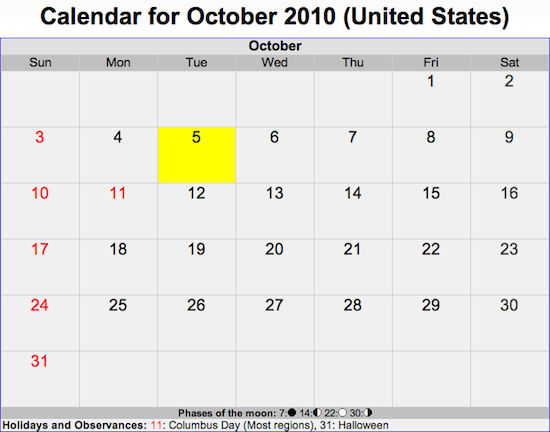
And here are the calendars for October 1982, October 1993, October 1999, and October 2021. See a pattern?
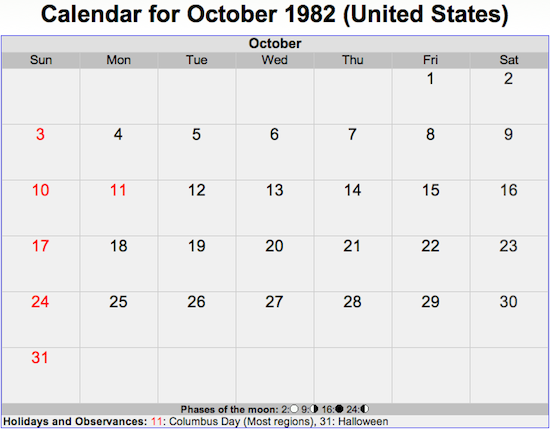
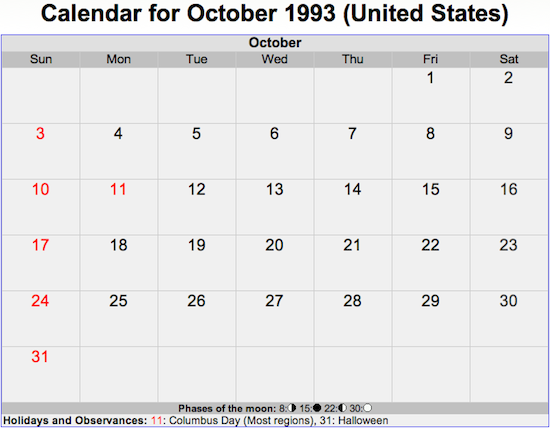
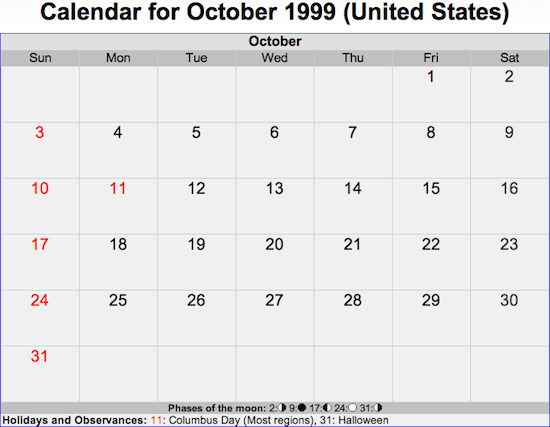
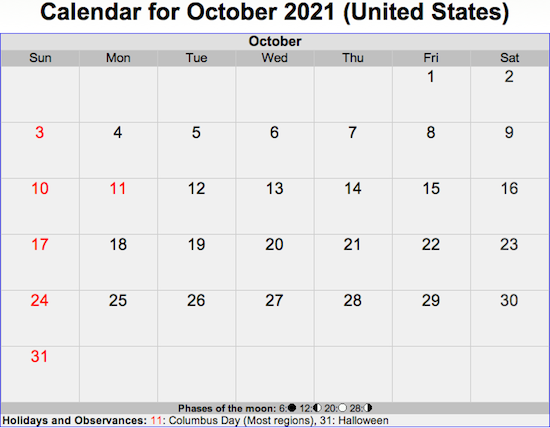
To save you the trouble, 1971 and 2004 had the same October calendar, and 2032 will have the same as well. Hardly a once-every-823-years event.
(P.S. There’s a pretty simple explanation for this all: For a 31-day month to have 5 Fridays, Saturdays, and Sundays, the first day needs to be a Friday. Each nonleap year has 365 days, which is 52 weeks plus one day [52*7=364; 364+1=365.] So every passing year will ‘push’ the first day of the month forward by one day, defining ‘forward’ as Friday -> Saturday, Saturday -> Sunday, etc. However, if it’s a leap year, the first day of the month will be pushed forward by two days. Since any six-year cycle will contain at least one leap year, this means that the same October calendar should reappear every six years [five one-day pushes forward and one two-day push = one full week covered] unless there are two leap years that fall in that space, in which case the whole cycle will be shifted forward by one day.)
Update: Hah! Chris O’Leary responds to the comic that started the hoopla: (h/t TDW)
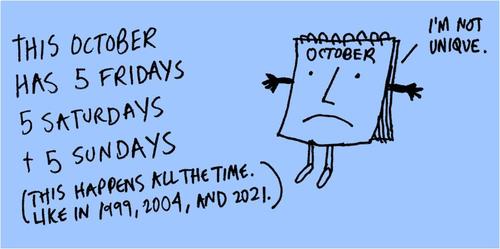
(h/t Doug’s Darkworld. title pic via Cargo Collective)
Have a tip we should know? [email protected]